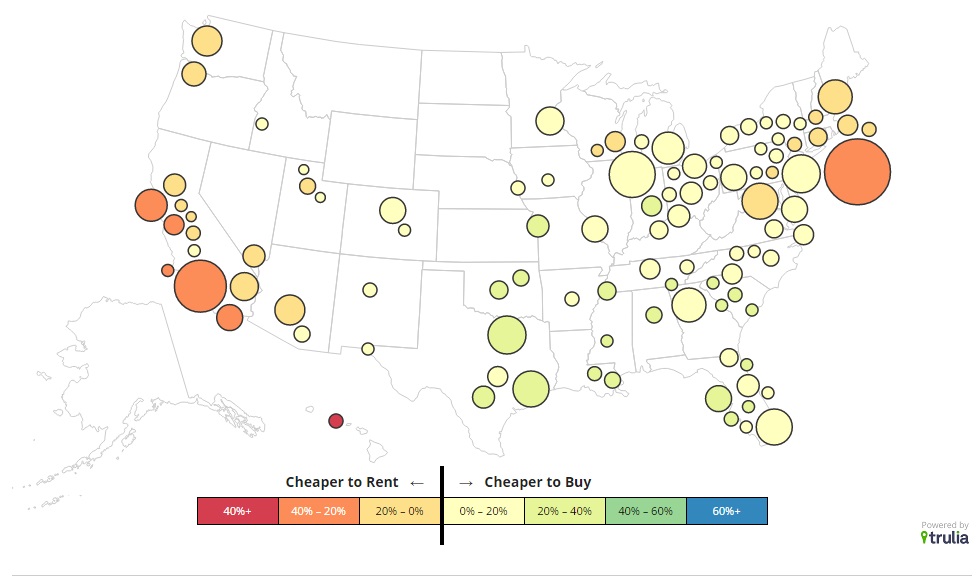“But there has been also the American dream, that dream of a land in which life should be better and richer and fuller for every man, with opportunity for each according to ability or achievement. It is a difficult dream for the European upper classes to interpret adequately, and too many of us ourselves have grown weary and mistrustful of it. It is not a dream of motor cars and high wages merely, but a dream of social order in which each man and each woman shall be able to attain to the fullest stature of which they are innately capable, and be recognized by others for what they are, regardless of the fortuitous circumstances of birth or position.”
–James Truslow Adams
Is the American Dream Really an Illusion?
There is a great illusion when it comes to real estate. This illusion is that owning your home is an investment.
- When you own real estate and use it to generate monthly income… it is an investment.
- When you buy real estate and develop it to sell for a profit… it is an investment.
- When you buy real estate to live in… It is not an investment. It is a personal expense.
Where did this idea come from that every American should own their home?
I heard that Fannie Mae came up with the “American Dream” idea as part of a marketing campaign that everyone should own their own home. Great idea on their part. While this might be great for Fannie Mae, is it a good idea for everyone to buy into this dream?
Should I Rent or Buy a Home?
Most people believe that owning a home should be considered an investment. Some go as far to become “house poor” so that they can leverage themselves into a bigger home. This does not seem wise to me.
There is also a social stigma to being a renter vs an owner. If you are an owner, you are perceived as being more well off. But are you? I will discuss the financial aspects of home ownership vs. renting in my next post, What is the True Cost of Owning a Home?. The numbers may shock you.
Here is the US map of whether it is cheaper to rent or own in each US city. It is not as clear-cut as you might think.
If you look at this chart you will notice that it is not always cheaper to own than rent. There are a number of variables to consider, many of which are not included in this map. If you want to know the secret behind the numbers of why people make mistakes, I will discuss this in the next post of this series.
If you are looking to rent or buy a home then there are a number of factors that you should consider. Here are a few considerations to look at when buying a home.
Pros and Cons of Whether to Rent or Own a Home
The best way to look at this question of whether to rent or buy a home is to look at the positive aspects, negative aspects, figure out what is important to you, and then run the numbers to see which is the more financially responsible approach.
What are the positive aspects of buying a home?
- A sense of ownership– Most people who own their home appreciate the ability to do what they want to their home. They can do any renovation they want, they don’t have to get an ok from anyone (except for maybe the building inspector).
- A sense of accomplishment- Keeping up with the Joneses is subconsciously important to many people. Being a homeowner brings with it a level of cache and respect with your peers.
- Capital appreciation- While the idea of the “American Dream” may have been a marketing ploy, history has not done much to discount this notion. Home prices have gone up substantially over the past 60+ years. They have been a great hedge against inflation.
- More choices- While it would be nice to think that you can find any home your want whether you are renting or buying, it just isn’t the case. There are more homes for sale than there are for rent when it comes to single-family homes.
What are the negative aspects of buying a house?
Illiquidity– A house is an illiquid asset. This means that if you want to sell it, it could take you a month or more than a year to sell it. If you have to relocate to another area, this can make it a bit of a challenge for you. You may even have to heavily discount your asking price to move it quickly.- Prices don’t always go up– As we saw in 2007-2010, home prices don’t always go up. When you are buying an expensive asset with leverage, you better hope that prices continue to go up. Otherwise, you might be “underwater” on your home equity.
- Large down payment- It will require a large down payment to buy a home. Not everyone has enough capital to put down a 20% downpayment. This can deviate funds designated for other areas such as an emergency fund or retirement savings.
- Costs of ownership- While many people calculate the costs of ownership as mortgage payments, taxes, and insurance, they typically miss a few other items that can add up. Things such as maintenance costs, landscaping, furnishings, HOA fees, and renovation costs. I will discuss these in the next post of this series.
- Being “house poor”– Many homeowners stretch financially to buy a house. This puts them in a dangerous position if their financial situation suddenly changes.
What are the positive aspects of renting a home?
- Mobility- You have the freedom to move anytime you want. While your lease agreement will dictate the terms of your moving out, if you need to relocate you can do it on a short notice.
- No maintenance costs– Owning a home costs money. The periodic maintenance can be expensive. The house may need to have a new exterior siding, new roof, or other expensive replacements. As a renter, you will not be responsible for these costs.
- Monthly costs- This will depend on where you live and how much the house costs. However, in many cases, it is cheaper to rent than to own.
- No down payment needed– Owning a home requires a down payment, renting does not.
What are the negative aspects of renting a home?
- Fewer choices- The choices are more narrow for renters. There are not as many rentals as there are homes for sale, so you have a more limited choice of where to live.
- Inflexible ability to “make it yours”– most landlords do not want the renters to do renovations to the house or other projects that suit their specific needs. This can restrict your ability to fully enjoy your home or make it feel like it is yours.
- No capital appreciation– If you rent a home for 20 years you will miss out on the potential capital appreciation of the property. This is not a guarantee that appreciation will happen, but if history is a guide then you should consider this.
How can you decide?
The best way to decide is to consider each one of these above pros and cons of whether to own or rent a home. How important is it that you have a feeling of ownership, or to make changes to the house? Do you think the prices of real estate are going up or down? What will happen with inflation? These are important questions.
The numbers play a big role in this decision-making process. While I don’t discount the emotional feelings involved in finding a home to live in, I cannot quantify those here. Therefore I will only address the financial aspects of the decision.
In my next week’s post, I will address the financial considerations of whether to rent or own a home. In the third post of this series, What You Don’t Know About Renting vs. Buying a Home Can Cost You Money, I will show some local examples from the Greater Boston area. I have found some fascinating data that should be obvious to people, but I doubt they look for this one thing. Read the next post, What is the True Cost of Owning a Home?, if you want to learn more.
You can sign up for our weekly blog posts via our VIP email service.
Sources:
James Truslow Adams introduced the term “American Dream” in his 1931 book The Epic of America (2nd Edition, Greenwood Press, p. 404)
Trulia
About Innovative Advisory Group: Innovative Advisory Group, LLC (IAG), an independent Registered Investment Advisory Firm, is bringing innovation to the wealth management industry by combining both traditional and alternative investments. IAG is unique in that they have an extensive understanding of the regulatory and financial considerations involved with self-directed IRAs and other retirement accounts. IAG advises clients on traditional investments, such as stocks, bonds, and mutual funds, as well as advising clients on alternative investments. IAG has a value-oriented approach to investing, which integrates specialized investment experience with extensive resources.
For more information, you can visit http://innovativewealth.com
About the author: Kirk Chisholm is a Wealth Manager and Principal at Innovative Advisory Group. His roles at IAG are co-chair of the Investment Committee and Head of the Traditional Investment Risk Management Group. His background and areas of focus are portfolio management and investment analysis in both the traditional and alternative investment markets. He received a BA degree in Economics from Trinity College in Hartford, CT.



